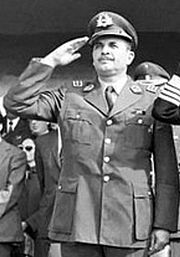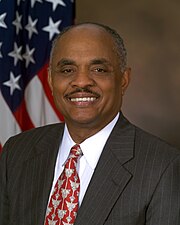Design
Design
Personality
Chart Properties
Your Cross represents the specific theme of your life. This cross embodies your unique potential & the lessons you're here to learn, providing a roadmap to fulfilling your life purpose.
We use the UTC birth time and date to do the calculations required to generate your Human Design chart.
Buy Tokens
Pay as you use, no expiry and no subscription required.Boy George's Biography
British musician, the lead singer with the rock group “Culture Club.” A transvestite with a strange lifestyle, he was never seen in public without make-up, as he felt that without it, he, “just didn’t look pretty.” With flawless complexion, a flair for hair, crazed couture and free-form gender-bending, Boy George seemed the least likely image of a rock star. However his group rocketed to the top of the charts in 51 countries with their 1982 number one hit, “Do You Really Want To Hurt Me.” The following year, their album, “Karma Chameleon,” sold a million copies in three weeks in Great Britain alone. They sashayed to the Top Ten five more times in the following two years and sold 25 million records between 1982 and 1987.
Their popularity began to wane as George went from a cocaine to a heroin habit that cost somewhere in the neighborhood of $1200 a week. In 1986, he lost 56 pounds before being arrested on a drug charge, which probably saved his life, if not his bankroll. When arrested, he protested that he was a drag addict, not a drug addict. He was given a minor fine and dismissed. Then, on 6 August 1986, 27-year-old musician Michael Rudetsky was found dead of a heroin OD in George’s home. Although he was cleared of wrongdoing, the musician’s parents filed a $44 million lawsuit in November, accusing George of actively participating in their son’s death of heroin injection.
On 21 December, another drug-buddy was found dead of an OD. The shock finally got through to George that this was a wake-up call. It took several tries and a brief addiction to sleeping pills. He tried a 12-step recovery program, experimented with homeopathic medicine and finally kicked the junk in 1987. He became strictly vegetarian, practiced yoga-style Tibetan exercises daily, and having quit cigarettes, forbade smoking in his house.
Though barred from entering the U.S. due to the drug conviction, George began a tour of Europe in the fall of 1987, declaring that he is drug-free except for mild tranquilizers. He claims solace from Buddhist chanting which he began in January 1987.
George, his four brothers and a sister, grew up in a large, Catholic family. When he was about 16, he began wearing black lipstick and a bit of mascara, fitting into the punk scene. Through his fabulous successes and grimy downfalls, his family has remained supportive with both his dad and mom taking stints of staying with him while he was getting clean and dry. He never talked much with his dad as a kid, but now they talk while his dad cooks and they feel much closer than ever before.
His autobiography, “Take It Like A Man,” was published in the fall of 1995 after working on it for seven years. When he started the book and was entering therapy, he realized how much he was playing the victim and decided to stop perpetuating the myth.
George came back up the charts in 1993 with a hit single, his first in five years, “The Crying Game.” Now older and wiser, he examines his early success. He had gone quite overboard, soaking up fame, love, food, sex, drugs, money, all there was.
Throughout his battle with drugs, Boy George was writing, performing and recording music. From 1991 to 1993 alone, he wrote some 200 songs.
He has given up the dresses he once wore but not his makeup in public. He feels free enough to wear sloppy pants and a T-shirt, but is not ready to give up his flamboyant exhibitionism. In the mid ’90s, George worked as a DJ in London and was the owner of a small dance record company, More Protein Records. He also wrote a column for the “Sunday Express” and had a weekly radio show. In 1998, he began to reassemble his old band mates for a U.S. tour, which was now open to him.
More recently, he has released fewer music recordings, splitting his time between songwriting, DJing, writing books, designing clothes and photography. He starred as Leigh Bowery in the London musical Taboo, based on the New Romantic scene of the early 1980s, receiving a nomination for a Tony Award for the “Best Musical Score.” In 2005, George released Straight, the second volume of his autobiography.
In January 2009, George was sentenced to 15 months in prison for falsely imprisoning a male escort (Auden Carlsen) by handcuffing him to a wall and beating him with a metal chain. The incident, which happened in April 2007, stemmed from George’s belief that Carlsen had attempted to hack into his computer while he was visiting George’s flat for a nude photo session. Although the sentence was for 15 months, he was released after serving only four months. After being released from prison, George resumed his DJ career embarking on a worldwide tour of clubs.
In January 2016, George joined the fifth series of The Voice UK, replacing Tom Jones as a mentor.
Link to Wikipedia biography
Boy George
Your Cross represents the specific theme of your life. This cross embodies your unique potential & the lessons you're here to learn, providing a roadmap to fulfilling your life purpose.
We use the UTC birth time and date to do the calculations required to generate your Human Design chart.


César Mendoza
1/4 Emotional - Solar Plexus Manifesting GeneratorMichel Parent
2/4 Emotional - Solar Plexus Manifesting GeneratorDorus Rijkers
5/2 Emotional - Solar Plexus ManifestorMadhav Moghe
6/2 Sacral Generator





